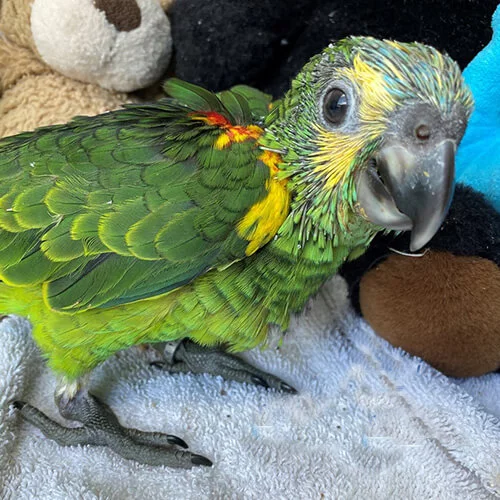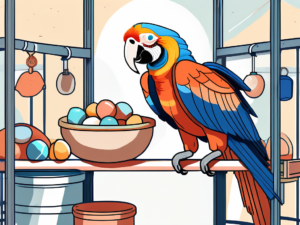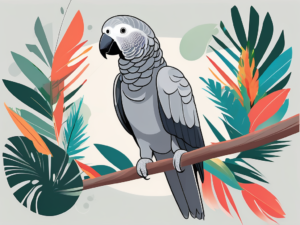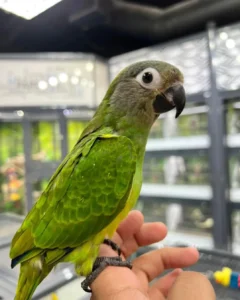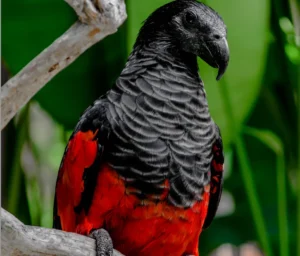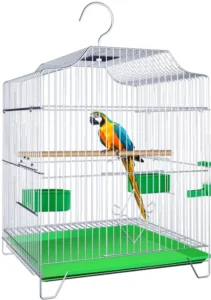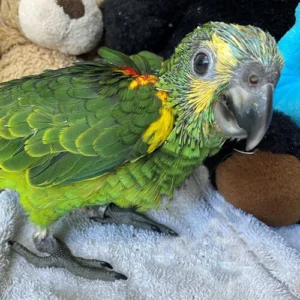Baby parrots are incredibly charming and delightful, but they require specialized care and attention to grow into happy, healthy adult birds. This guide will provide you with everything you need to know about caring for baby parrots, from feeding and health care to training and commands. We’ll also cover where to find and purchase these beautiful creatures, ensuring you make an informed and secure decision.
Understanding Baby Parrots 🦜
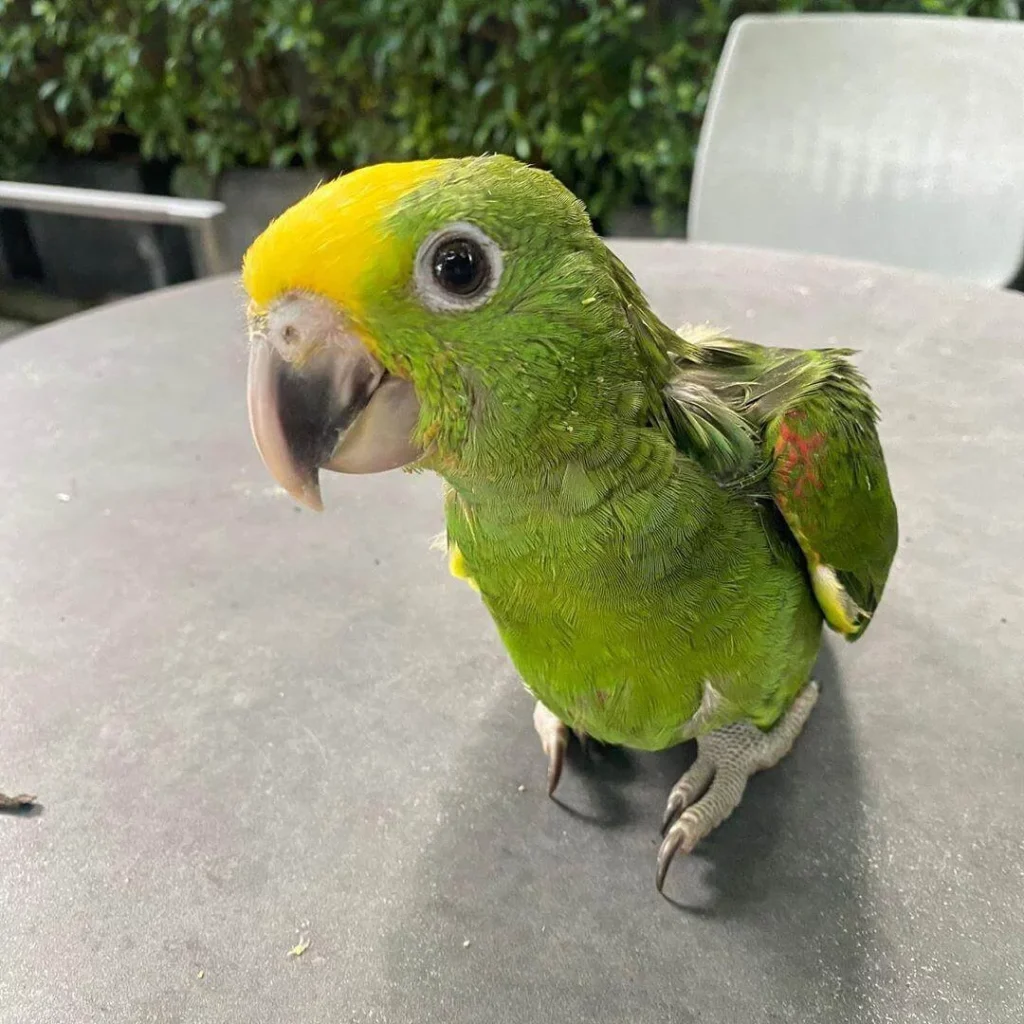
Baby parrots, also known as chicks, are incredibly dependent on their caregivers. They require consistent care to thrive and develop into well-adjusted adult birds. Here’s an overview of what you need to know about their early development:
The Early Stages of a Baby Parrot’s Life
- Hatching and Nestling Stage: This is the initial stage where the parrot is completely dependent on its parents or caregivers for food and warmth.
- Fledgling Stage: At this stage, the parrot begins to develop feathers and starts to explore its environment. It will start to learn how to fly and interact with its surroundings.
- Weaning Stage: As the parrot approaches maturity, it begins transitioning from a diet of formula to solid foods and starts learning essential social and survival skills.
Why Choose a Baby Parrot?
- Socialization: Hand-raised baby parrots are generally more socialized and accustomed to human interaction.
- Training Potential: They are more adaptable to training and commands when they are introduced to them early.
- Bonding: Early bonding with a caregiver can lead to a stronger, more trusting relationship.
Finding and Purchasing Baby Parrots 🌟

Parrot Grooming Guide – Parrots for sale.
When you decide to buy parrots online or purchase a baby parrot from a local breeder, it’s crucial to ensure you’re getting a healthy, well-cared-for bird. Here’s how to make a secure and informed purchase:
Where to Buy Baby Parrots
- Online Stores: Many reputable parrot sales online stores offer baby parrots. Ensure they provide detailed information about the parrot’s health and background.
- Local Breeders: Visiting local breeders allows you to see the living conditions of the parrots and assess their health firsthand.
- Rescue Organizations: Consider adopting from a rescue organization. It’s a compassionate choice and provides a home for a bird in need.
Keywords to Search:
Secure Purchase Tips
- Verify the Seller: Check reviews and ask for references to ensure the seller’s credibility.
- Health Guarantee: Ensure the seller provides a health guarantee and relevant documentation.
- Visit in Person: If possible, visit the breeder or seller to see the parrot and its living conditions.
Caring for Baby Parrots 🏠
Caring for baby parrots involves meeting their physical, emotional, and developmental needs. Here’s a comprehensive guide to ensure they thrive:
Feeding and Nutrition
- Formula Feeding: For newborns, use a specialized baby bird formula. Follow the instructions carefully and ensure the formula is at the correct temperature.
- Transition to Solid Foods: Gradually introduce soft fruits, vegetables, and high-quality pellets as the parrot begins to wean. Ensure the food is appropriately sized for their beak.
- Fresh Water: Provide clean, fresh water at all times.
Housing and Environment
- Cage Setup: Provide a spacious cage with appropriate perches and toys. Ensure the cage is safe and free from hazards.
- Temperature and Humidity: Maintain a warm environment, as baby parrots are sensitive to temperature changes. Ensure the room is draft-free and has adequate humidity.
- Cleanliness: Regularly clean the cage and replace bedding to prevent infections and maintain a healthy environment.
Health and Veterinary Care
- Regular Check-Ups: Schedule regular veterinary visits to monitor the parrot’s health and development.
- Signs of Illness: Be vigilant for signs of illness such as lethargy, changes in droppings, or difficulty breathing. Consult a vet if any concerns arise.
- Grooming: Regularly check and trim nails if necessary. Baby parrots will generally preen themselves, but occasional baths or misting can help keep their feathers in good condition.
Socialization and Bonding
- Daily Interaction: Spend quality time interacting with your baby parrot to build trust and comfort. Gentle handling and talking will help them feel secure.
- Training: Start with basic commands and gradually introduce more complex ones. Consistency and patience are key.
Training Commands for Baby Parrots 🎓
Training your baby parrot involves introducing them to commands and tricks gradually. Here’s how to get started with basic training:
Basic Commands
1. Step-Up Command
How to Teach:
- Position Your Hand: Hold your hand or a perch close to the parrot.
- Say the Command: Use a clear command like “step up” while gently encouraging them to step onto your hand or perch.
- Reward: Immediately reward them with a treat and praise when they comply.
2. Step-Down Command
How to Teach:
- Move Your Hand: Lower your hand or perch to encourage them to step down.
- Say the Command: Use “step down” while guiding them off.
- Reward: Praise and reward them as soon as they step down.
Advanced Tricks
1. Wave Goodbye
How to Teach:
- Hold Their Foot: Gently lift one of their feet while saying “wave.”
- Encourage Movement: Guide their foot up and down to mimic a waving motion.
- Reward: Offer a treat and praise when they perform the trick.
2. Spin Around
How to Teach:
- Guide with a Treat: Hold a treat and move it in a circular motion.
- Say the Command: Use “spin” while guiding them.
- Reward: Reward them immediately after they complete the spin.
3. Talk and Mimic Sounds
How to Teach:
- Repeat Words: Consistently repeat words or phrases you want them to learn.
- Encourage Mimicking: Use positive reinforcement when they attempt to mimic sounds or words.
- Practice Regularly: Regular practice helps improve their talking ability.
Tips for Effective Training
- Be Patient: Training takes time, especially with young parrots.
- Consistency: Use the same commands and rewards to avoid confusion.
- Short Sessions: Keep training sessions brief and engaging to maintain their interest.
Health and Safety Considerations 🚑

Parrot Grooming Guide – Parrots for sale.
Ensuring the health and safety of your baby parrot involves vigilance and proper care:
Regular Veterinary Care
- Routine Check-Ups: Regular veterinary visits help detect and address health issues early.
- Vaccinations: Ensure that the parrot is up-to-date on necessary vaccinations.
Safe Environment
- Avoid Hazards: Keep household chemicals, plants, and other potential hazards out of reach.
- Secure Cage: Ensure the cage is secure and free of hazards that could cause injury.
Mental Stimulation
- Interactive Toys: Provide toys that challenge their intelligence and encourage exploration.
- Social Interaction: Regularly interact with them to prevent boredom and stress.
Conclusion
Caring for baby parrots requires commitment and understanding. By providing the right environment, nutrition, and training, you can help your baby parrot grow into a healthy, happy adult bird. Whether you’re looking to buy parrots online, order parrots, or purchase hand-raised parrots, make sure to choose a reputable source to ensure the best start for your new feathered friend.
Keywords to Explore:
- Buy pet parrots
- Parrot buying guide
- Parrots for sale now
- Parrots for sale near me
- Parrot sales online store
For more information on parrot care and training, browse our resources or get in touch with experts. Happy parrot parenting! 🦜

